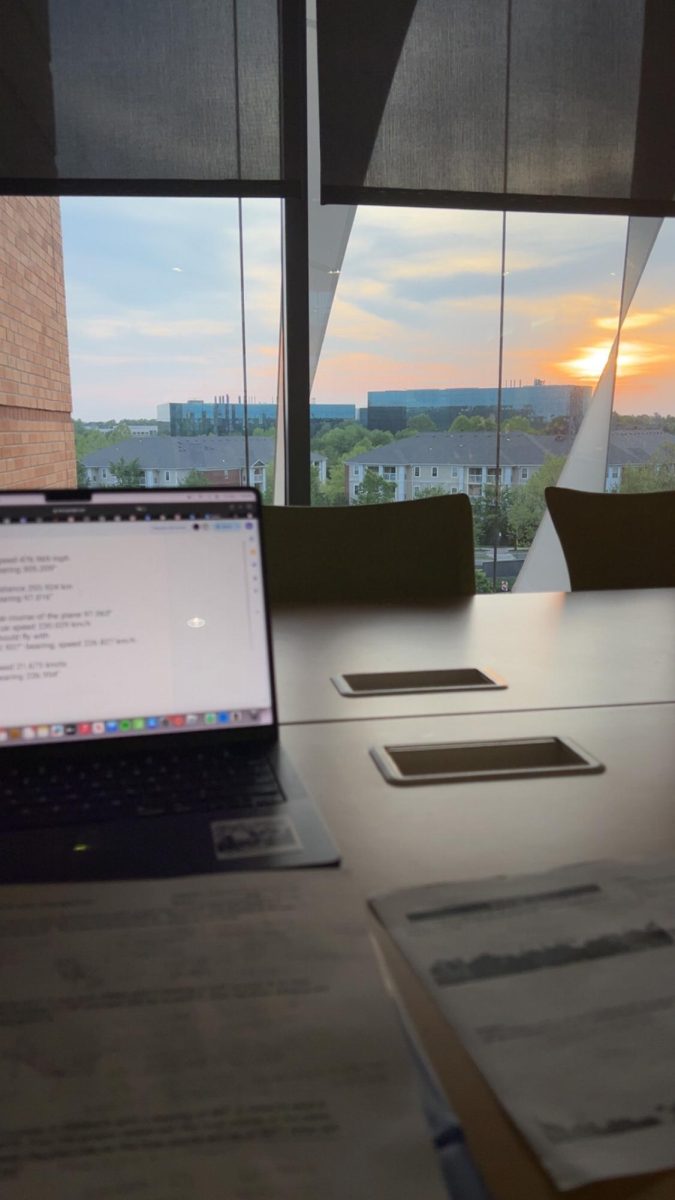Eight years. The world only has eight years to reach net zero emissions in order to stay below the 1.5 global degrees Celsius outlined in the Paris Climate Agreement. Since the effects of climate change are heightened by every 10th of a degree increase, reaching 1.5 degrees Celsius doesn’t seem like a dramatic shift, but the irreversible damage to the planet will be evident.
In 2021, the United Nations Intergovernmental Panel on Climate Change predicted a carbon budget of 500 billion metric tons. This carbon budget is the limit of carbon dioxide emissions that the world has to stay below 1.5 degrees Celsius. If humankind continues to use carbon dioxide at the current rate, according to a study published by Nature Climate Change, the allocated carbon budget will run out by mid-2032, while newer assessments estimate even as close as 2029. Currently, the contamination humans have caused is permanent and we can now only try to prevent the global degrees of the planet from continuing to escalate.
The Montgomery County community is trying to do its part in protecting the planet. On June 28, 2022, the Montgomery County School Board adopted Policy ECA Sustainability to cut greenhouse emissions by 80% in 2027, and 100% by 2035, compared to 2005 levels. The Board plans to reduce the generation of greenhouse gasses, reduce reliance on nonrenewable resources, increase the generation of solar energy, reduce waste and focus on school environments. As detailed in their policy, they aim to accomplish these desired outcomes by infusing sustainability concepts into curricula, replacing diesel and gas-powered vehicles with electric, and using reusable and recyclable locally sourced products.
According to the MDE Climate Pollution Reduction Plan, Maryland has achieved a 30% reduction in emission levels from 2006 to 2020, this being faster than most other states. Locally as part of the mission to reduce greenhouse gas emissions, MCPS has 86 electric buses located at each of the five MCPS bus depots. By the 2024-2025 school year, the county expects an additional 240 buses. Despite this progress since 2022 when the first set of electric buses were put into action, this change is not enough to compensate for the damage already done. As of the 2017-2018 fiscal year, 418 million lbs of carbon dioxide equivalent were emitted just by MCPS. 51% of the emissions were produced by transportation comparable to 211 million lbs of carbon dioxide. The emissions from energy were 59% of the total emissions equivalent to 238 million lbs. The emissions for waste by MCPS was only 31 million lbs; these levels were an offset that helped lower the overall emissions of the county by 9%.
While there have been improvements in the emission levels over the past decade, only reaching net zero emissions in 2040 won’t cut it. With the projected timeline until the planet’s temperature rises above 1.5 degrees Celsius, the devastating effects of climate change will have already impacted communities and ecosystems. MCPS isn’t doing enough. The predicted warming will threaten coral reefs, melt Antarctic ice sheets, cause stronger extreme weather events and cause intensified wildfires. While these effects are deadly enough on their own, with melting Antarctic ice sheets, the water levels will rise, posing a new problem by creating acidic ocean water, which will negatively impact crops in parts of the world and ocean life. Populated coastal regions will bear the effects of the rising sea levels, and also the effects of hurricanes, which, due to warmer ocean temperatures, will gain speed as they approach coastlines.
MCPS and communities around the world must do their part in reducing their carbon footprint through any measures possible. With humanity’s reliance on carbon dioxide, it will be nearly impossible to stay below the Paris Climate Change Agreement’s 1.5 degrees Celsius target, though working to control the rate at which the global temperature increases is crucial as the damages society as wrecked on the planet are irreversible.








